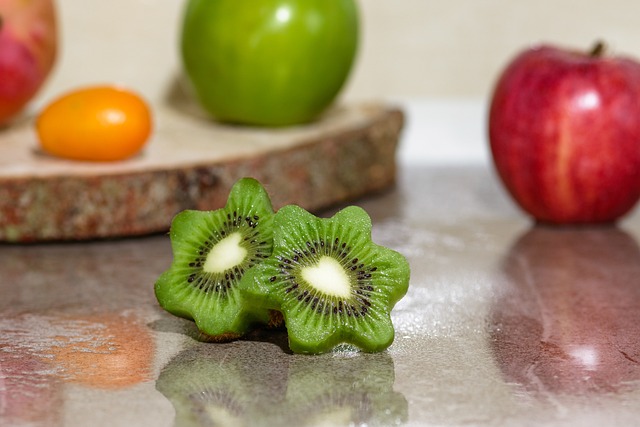Research Highlights:
|
Even in adults without hypertension, blood pressure readings can rise more over the years as the number of daily alcoholic drinks increases, according to an analysis of seven international research studies published today in Hypertension , a journal of the American Heart Association .
Powered by seven international research studies, this analysis confirms for the first time that there was a continuous increase in blood pressure measurements in participants with low and high alcohol consumption. Even low levels of alcohol consumption were associated with detectable increases in blood pressure levels that can lead to an increased risk of cardiovascular events.
" We found no beneficial effects in adults who drank a low level of alcohol compared to those who drank no alcohol," said the study’s senior author, Marco Vinceti, M.D., Ph.D., professor of epidemiology and public health at the School of Medicine at the University of Modena and Reggio Emilia University in Italy and adjunct professor in the department of epidemiology at Boston University School of Public Health. "We were a little surprised to see that consuming an already low level of alcohol was also associated with higher changes in blood pressure over time compared to not consuming, although much less than the increase in blood pressure seen in the large drinkers."
"Our analysis was based on grams of alcohol consumed and not just the number of drinks to avoid bias that could arise from the different amount of alcohol contained in ’standard drinks’ between countries and/or types of drinks," he said. the co-author of the study. -author Tommaso Filippini, M.D., Ph.D., associate professor of epidemiology and public health at the School of Medicine of the University of Modena and Reggio Emilia in Italy, and affiliated researcher at the School of Public Health at the University of California in Berkeley.
The researchers reviewed the health data of all participants in the seven studies for more than five years. They compared adults who drank alcohol regularly with non-drinkers and found:
Systolic blood pressure increased by 1.25 millimeters of mercury (mm Hg) in people who consumed an average of 12 grams of alcohol per day, rising to 4.9 mm Hg in people who consumed an average of 48 grams of alcohol per day. day. (In the US, 12 ounces of regular beer, 5 ounces of wine, or a 1.5-ounce shot of distilled liquor contain about 14 grams of alcohol. The usual alcohol content differs from the alcohol available in other countries) .
Diastolic blood pressure increased 1.14 mm Hg in people consuming an average of 12 grams of alcohol per day, increasing to 3.1 mm Hg in people consuming an average of 48 grams of alcohol per day. These associations were observed in men but not in women. Diastolic blood pressure measures the force against artery walls between heartbeats and is not as strong a predictor of heart disease risk compared to systolic.
“Alcohol is certainly not the only driver of increases in blood pressure; however, our findings confirm that it contributes significantly. Limiting alcohol consumption is recommended, and avoiding it is even better,” Vinceti said.
Although none of the participants had high blood pressure when they enrolled in the studies, their blood pressure measurements at baseline did have an impact on the alcohol findings.
”We found that participants with higher baseline blood pressure readings had a stronger link between alcohol consumption and changes in blood pressure over time. "This suggests that people with a tendency toward increased blood pressure (although not yet ’high’) may benefit more from low or no alcohol consumption," said study co-author Paul K. Whelton, MD, M. Sc., president of the World Hypertension League. Whelton is also chair of the American Heart Association ’s 2017 Hypertension Practice Guidelines and a member of the writing committee for the Association’s 2021 Scientific Statement on the Management of Stage 1 Hypertension in Adults.
According to recommendations from the American Heart Association , if you don’t already drink, don’t start. If you drink, talk to your doctor about the benefits and risks of consuming alcohol in moderation. The Association also does not recommend drinking any form of alcohol for potential health benefits. Instead, follow the Association for Optimal Cardiovascular Health’s lifestyle and health metrics called the Life’s Essential 8: Eat healthy foods, be physically active, don’t smoke, get enough sleep, maintain a healthy weight, and monitor blood sugar levels. cholesterol, blood sugar and blood pressure.
Study details and background:
- The researchers analyzed data from seven large observational studies involving 19,548 adults (65% men), ages 20 to 70 at the start of the studies.
- The studies were conducted in the United States, Korea and Japan, and were published between 1997 and 2021. None of the participants had been previously diagnosed with high blood pressure or other cardiovascular diseases, diabetes, liver disease, alcoholism or excessive alcohol consumption.
- Habitual alcoholic beverage intake was recorded at the beginning of each study, and researchers translated this information into a typical number of grams of alcohol consumed daily. The researchers used a new statistical technique that allowed them to combine the results of several studies and plot a curve showing the impact of any amount of alcohol normally consumed on changes in blood pressure over time.
- Systolic blood pressure, the top number in a blood pressure reading, measures the force against the walls of the arteries when the heart contracts. It increases steadily with age and is a strong predictor of cardiovascular disease risk. Effective blood pressure control is vital to reducing, preventing or delaying the development of high blood pressure.
Conclusions Our results suggest that the association between alcohol consumption and systolic blood pressure is direct and linear with no evidence of a threshold for the association, while for diastolic blood pressure the association is modified by sex and geographic location. |
















